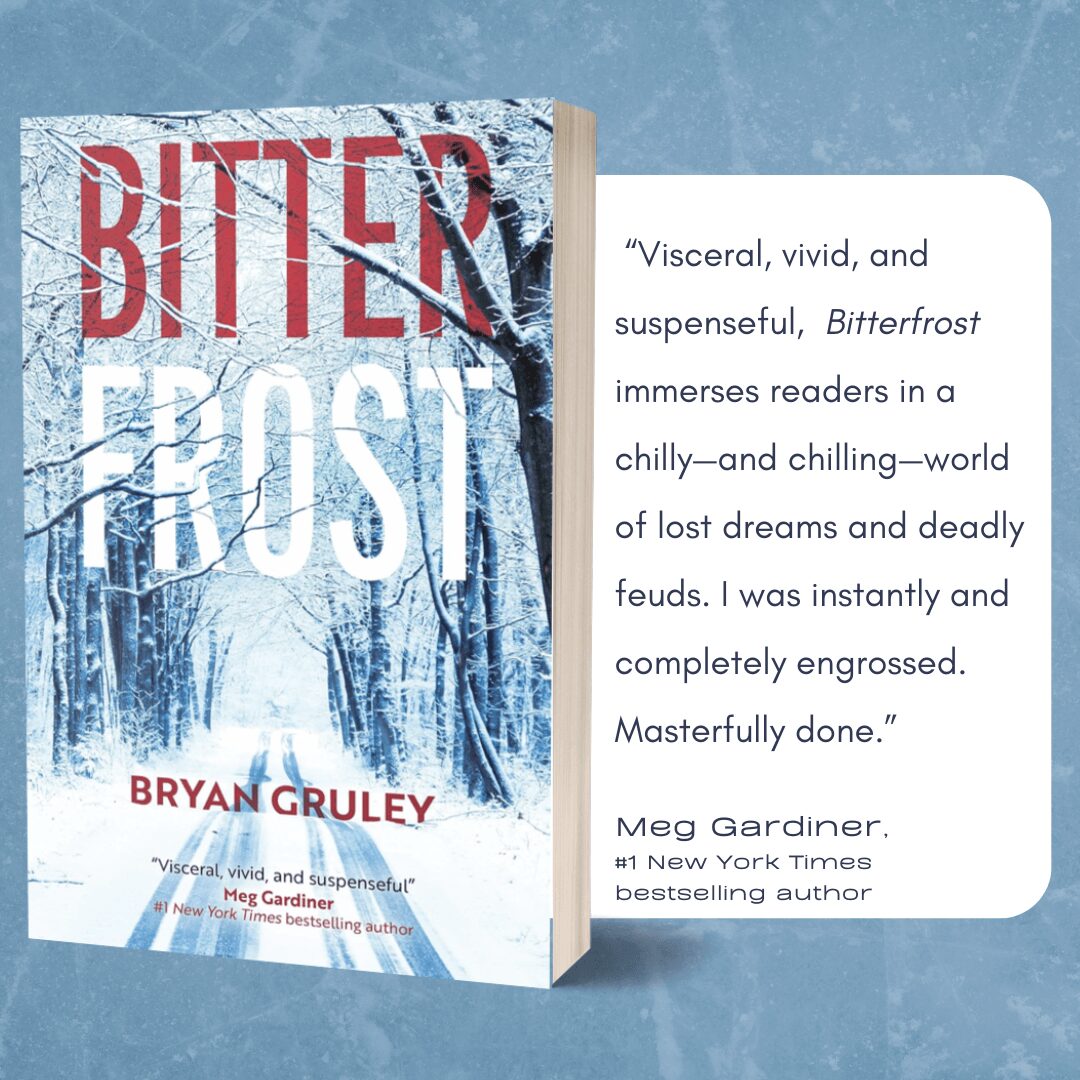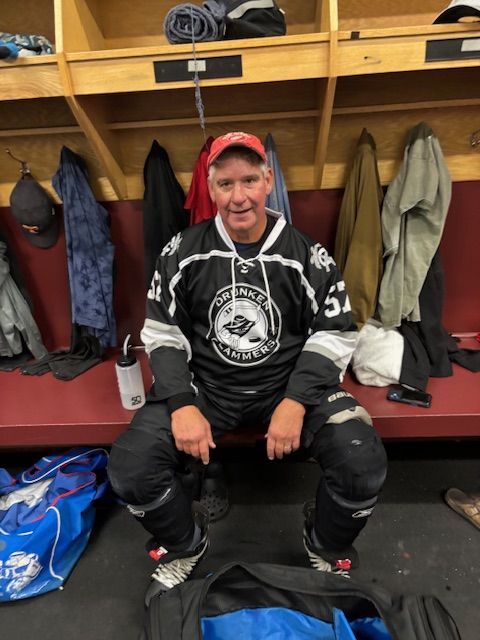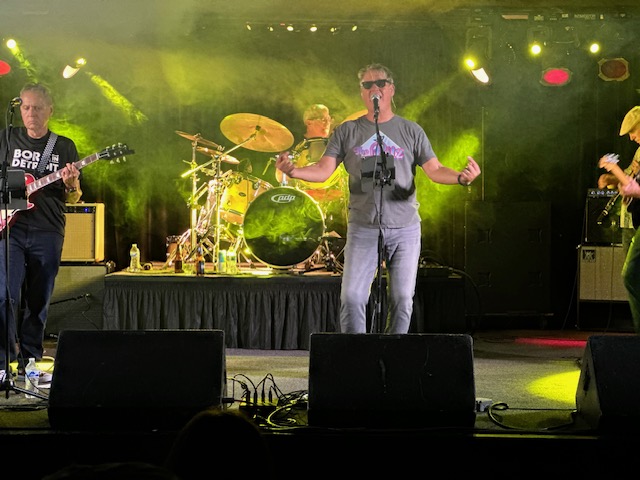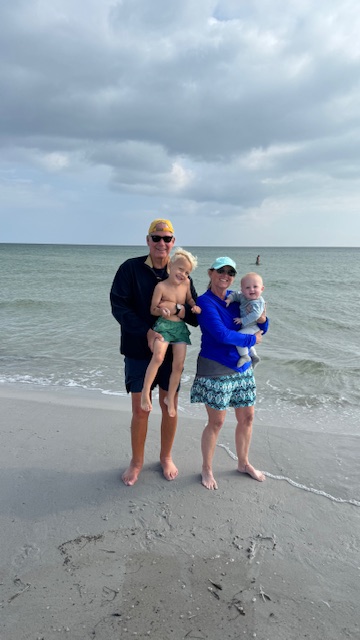

Today we’d like to introduce you to Bryan Gruley
Hi Bryan, please kick things off for us with an introduction to yourself and your story.
I’ve been writing since I could scratch words on a piece of notebook paper. I started writing stories and reading them to my classmates in second grade at St.Gemma Elementary in Detroit. I was encouraged by a number of teachers, especially Sheila Brice at St. Gemma and Jim Albulov at Detroit Catholic Central High School. At Notre Dame, I assumed I’d wind up getting a law degree. But school got boring and I decided to try journalism, which would let me write and make (sort of) a living. Had to borrow a textbook on writing news stories before landing my first job at the weekly Brighton Argus outside of Detroit. Four jobs later, I was a reporter for The Wall Street Journal in Washington–best job I ever had. Great newsroom full of fun, creative people. And lots of fascinating and important stories to cover, including the 9/11 terrorist attacks, for which our coverage earned us a Pulitzer Prize. I met CEOs and professional athletes and politicians, but most fun was spending time with people in small towns across America, an experience that would influence my fiction writing.
I still had another 20 years to go in journalism, but by 2000 I was wanting to write novels. Took me four years to write my first, and it was rejected by 26 publishers before Simon & Schuster picked it up as the first in a three-book deal. STARVATION LAKE came out in 2009, sold pretty well for a debut, and was nominated for the highest mystery/thriller award, the Edgar (didn’t win, but the awards dinner was a blast). I kept up the journalism thing until the end of 2020, spending my last nine years writing long-form features for Bloomberg Businessweek magazine, also a blast. By then I’d published four more novels, and now I have a sixth, BITTERFROST, coming in April. BITTERFROST tells the story of Jimmy Baker, a former minor league hockey player who quit the game after nearly killing an opponent in a fight. Thirteen years later, he’s the Zamboni driver in the tiny northern Michigan town of Bitterfrost–and the prime suspect in a brutal double murder. I’m at work on a sequel.
Can you talk to us a bit about the challenges and lessons you’ve learned along the way. Looking back would you say it’s been easy or smooth in retrospect?
Journalistically, my biggest challenge early in my career was learning how to report and research stories. I’d been writing for many years by then, but I had a lot to learn about interviewing people, plowing through documents, and figuring out how to tell complex stories about complicated subjects in a way that would engage readers from one paragraph to the next. I was petrified when I joined The Wall Street Journal in Washington,D.C., in 1995. The paper was my holy grail and I was surrounded by people whose bylines and stories had inspired me. I had some early slip-ups but was lucky to find mentors who kept giving me opportunities, especially Alan Murray, the Washington bureau chief who hired me.
On the made-up-stuff, the biggest writing challenge for me was dispensing with the distanced voice a journalist must adapt and embracing the strong point-of-view voice needed to make fictional characters come alive on the page. It’s a joy when a reader tells me how much they loved a story or a character or a scene. The business side of the game can be discouraging. Few novelists are so-called bestsellers. Very few. If you don’t sell a lot of books, publishers can disappear. With my new book, I was fortunate to find a publisher, Severn House, that believes in my work and could help me tell a few more stories in whatever time I have left.
Thanks for sharing that. So, maybe next you can tell us a bit more about your work?
I was a journalist for 41 years, working for The Detroit News, The Wall Street Journal, and Bloomberg Businessweek magazine and some smaller newspapers. Over time, I guess I became known, at least in the newsroom, for taking complicated business subjects and making them into readable yarns. Even tariffs can be written into something compelling, I (reluctantly) learned.
My favorite of the non-fiction stories I’ve written ran in the Journal in 2003. It was about a black World War II lieutenant who saved the life of a Polish boy who had escaped from Dachau in the waning weeks of the war. They spent nearly two years together then went their separate ways. Fifty-some years later, they had an unlikely reunion–and it changed both of them again. Probably the two most extraordinary people I’ve ever met.
I wrote one non-fiction book, PAPER LOSSES, published in 1993, then started with novels in 2009 with the publication of STARVATION LAKE. I retired from journalism in 2020 and have since focused on fiction. My sixth novel, BITTERFROST, comes out on April 1. New York Times bestselling novelist Meg Gardiner says BITTERFROST “immerses readers in a chilly–and chilling–world of lost dreams and deadly feuds. I was instantly and completely engrossed. Masterfully done.” Good to hear that from such a successful writer.
I also like to play guitar and sing. For the past three years, I’ve reunited for live shows with my high school band, The Ritz, playing ’70s rock and having the time of our lives.
What’s next?
Enjoy northern Michigan with my wife, Pam. Shovel less snow. See more of our five grandchildren. Write a sequel to BITTERFROST. Help other writers do what they do. Play some hockey and golf.
Contact Info:
- Website: https://www.bryangruley.com
- Instagram: @bryangruley
- Facebook: Bryan Gruley
- LinkedIn: Bryan Gruley
- Twitter: @bryangruley
















